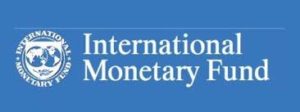- Despite a difficult economic and political environment, the Somali authorities are building a good track record of policy and reform implementation.
- The authorities are completing the preparatory steps for the launch of the new national currency, a high priority in their reform agenda.
An International Monetary Fund (IMF) staff team led by Mohamad H. Elhage visited Nairobi, Kenya, from September 15–20 to discuss with the authorities recent macroeconomic developments, progress under the SMP, and the economic outlook.
At the end of the visit, Mr. Elhage issued the following statement:
“The Somali authorities are building a good track record of policy and reform implementation. Despite a difficult economic and political environment, the Federal Government of Somalia has successfully completed two consecutive 12-month Staff-Monitored Programs (SMPs) since May 2016, and on June 20 this year, the Managing Director of the IMF approved a third 12-month SMP (SMP III) covering May 2018–April 2019. This third SMP will continue to lay the foundation so that Somalia obtains debt relief under the Heavily Indebted Poor Country (HIPC) Initiative as soon as feasible once established benchmarks are met.
“Despite recent efforts to further solidify economic stability, security and peace, challenges are significant. Somalia’s fragility is compounded by its vulnerability to natural disasters. The 2016–17 drought, which was followed by floods in some regions in 2018, has led to large humanitarian needs. Due mostly to an increase in internally displaced persons, demand for humanitarian assistance remained elevated in 2018. To address the weak security situation in the country, the Federal Government, jointly with the international community, has renewed its focus on building the capability of Somalia’s security forces and institutions as the country prepares for elections in 2020-21.
“Economic activity is recovering slowly from the 2016–17 drought aided by favorable rains and continued strong remittance inflows. For 2018, growth is projected to recover to 3.1 percent from 2.3 percent and inflation to ease to 3.5 percent, down from 5.3 percent in 2017. Fiscal performance through July was strong. This was driven by strong domestic revenue collection which largely offset the slow disbursement of grants.
“Performance under SMP III is satisfactory. The three end-June structural benchmarks and all six indicative targets were met. In addition, the September benchmarks are well on track and progress has been made to advance on the December 2018 and March 2019 benchmarks.
“Given the uncertainties about grant disbursements, expenditure will need to be contained. In this regard, the IMF team recommends the following measures for the remainder of 2018 to keep the fiscal framework on track:
- Continue to improve revenue collections from recent tax measures, including: (1) sales tax on imports of goods; (2) corporate profit tax; (3) sales taxes and license fees from telecommunication companies; and (4) continue transferring revenue collection from ministries, departments, and agencies to the Ministry of Finance, including visa charges, and passport and labor registration fees.
- Strengthen revenue collection by the Large-and-Medium-Taxpayers’ Office, which has been fully operationalized since June.
- Ensure that grant projections are consistent with confirmed pledged grants.
“The team commends the authorities’ strong resolve to successfully complete the preparatory steps for the launch of the new national currency, which remains a high priority in their reform agenda. They intend to swiftly establish a currency reform project management plan and administration along with an accountability framework.
“Given the difficult economic and political environment, there are downside risks to the program. However, the authorities’ continued strong commitment to the program, donor support, and efforts to strengthen relations with Federal Member States should mitigate those risks.
“During the visit, the team met with the Finance Minister, Mr. Abdirahman Duale Beileh; Central Bank Governor, Mr. Bashir Issa Ali; and other officials. The team also met with representatives of bilateral and multilateral donors present in Nairobi to support the authorities’ efforts to raise the funding for Phase I of the currency reform, update them on the performance under the SMP, and to coordinate efforts on capacity building activities. The team appreciates the open and candid discussions with the authorities and is grateful for the information made available to staff. Discussions also paved the ground for the 2018 Article IV Consultation visit that will be combined with the first review under SMP III, scheduled for November/December 2018.”
IMF







































